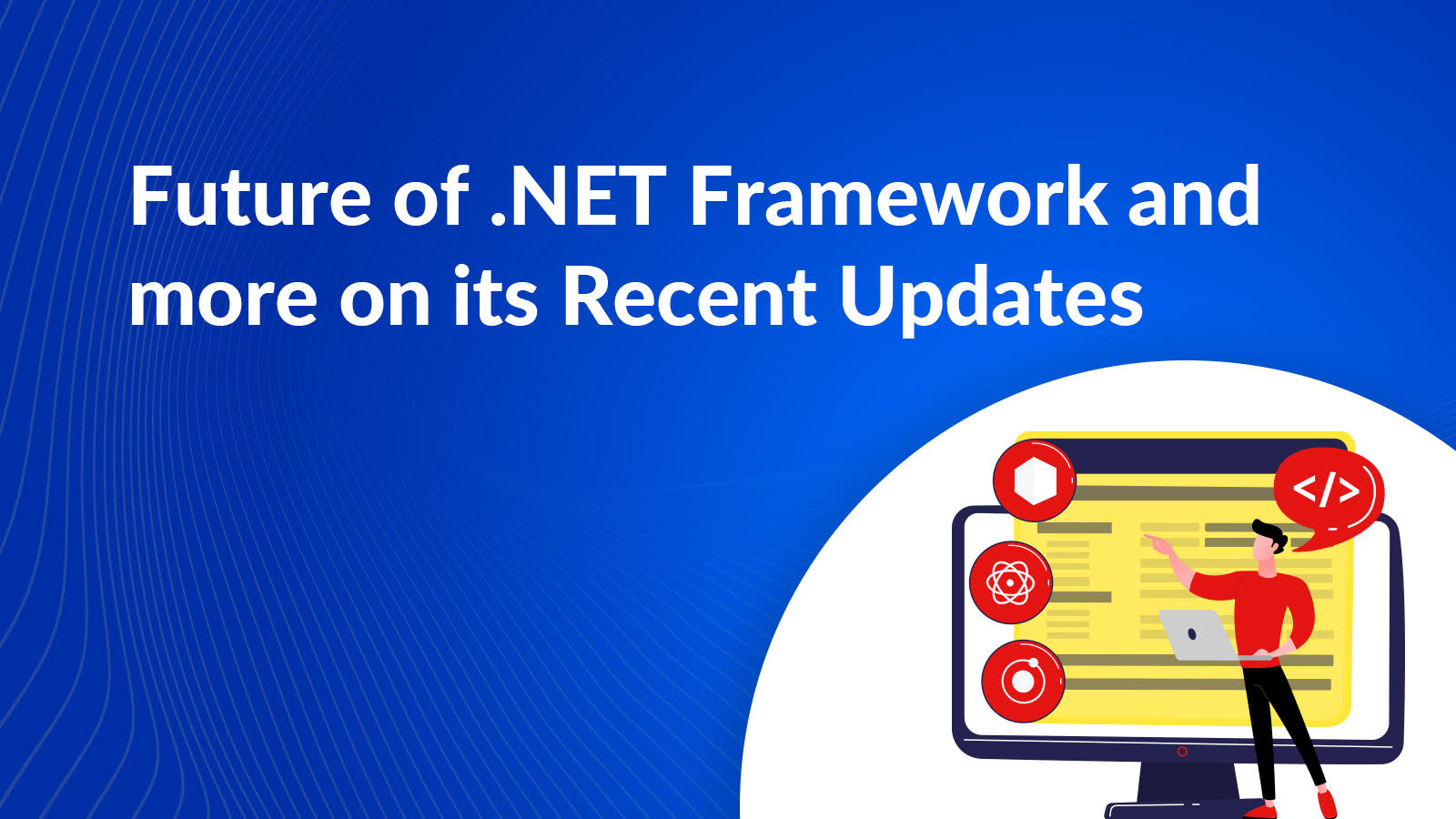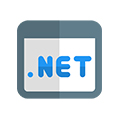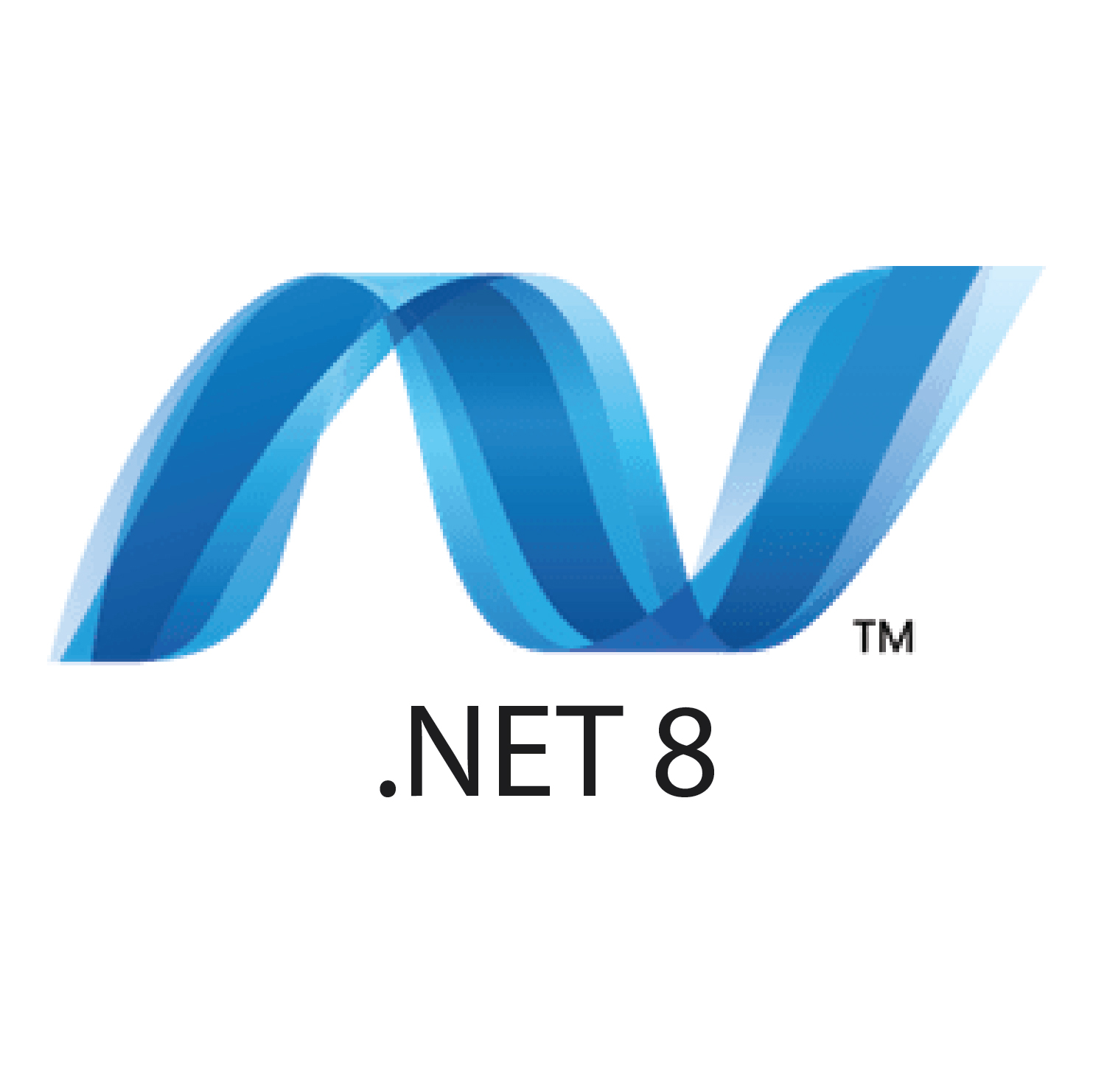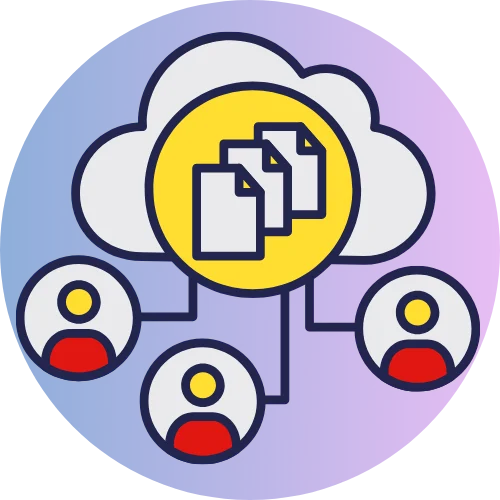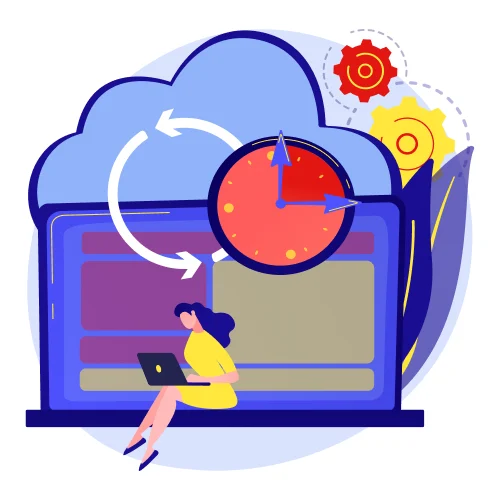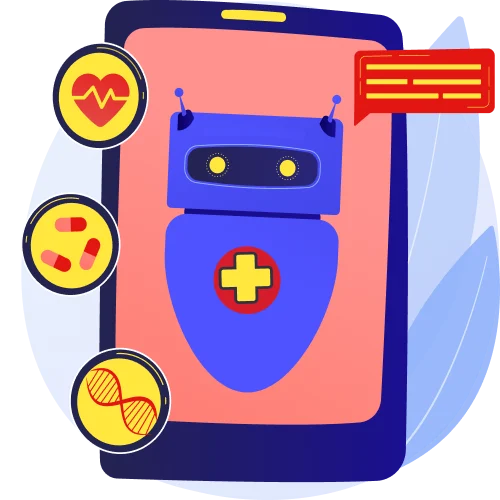How does the .NET framework fare in the future? Is the framework suitable for developing software in 2023 and beyond? Does it meet the ever-growing performance demands, and how long will it remain relevant? So, what exactly is the future of .Net?
We need to examine Microsoft’s current .NET development ecosystem, its future plans, and the potential of the framework in order to find all the answers we need.
Microsoft’s .NET Plans
The relevance of any development platform depends on how interested its creators are in it. Let’s take a look at Microsoft’s plans for the future of the .NET framework.
Microsoft introduced .NET 5 a year ago. The open-source framework has been, reworked to become a cross-platform development powerhouse. It was an important move by the company, but it didn’t end there.
A new version of the .NET framework will be, released every November, Microsoft promised. It represents a considerable investment and commitment for the tech giant, given the size and capabilities of .NET. In other words:
With Microsoft’s commitment to keeping track of the most pressing demands of the development community, the platform will remain current.
Despite any curveballs this future may throw, Microsoft believes that .NET is the future of software development.
Are, their ambitions reflected in reality?
Know the Cost Of Developing a .NET Application
.NET Framework: The Present and the Future
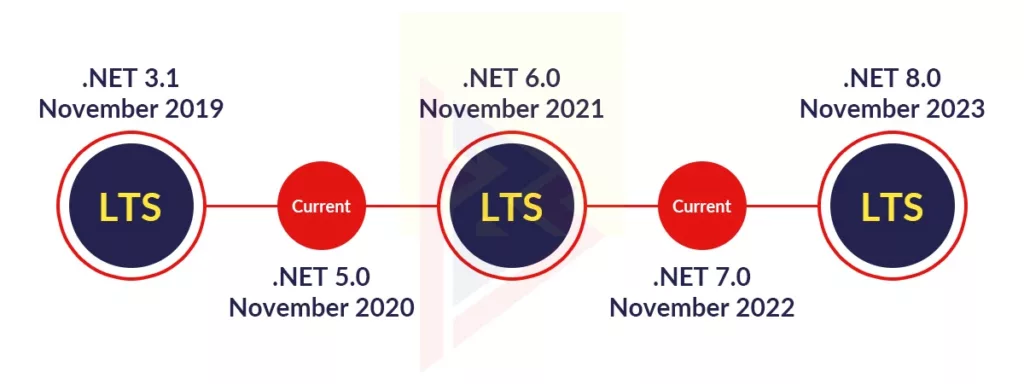
.NET’s future is being shaped right now: with every update of the framework, the responses of the development community, and the perception of the platform, it will further grow and develop.
How does the .NET Framework present itself today?
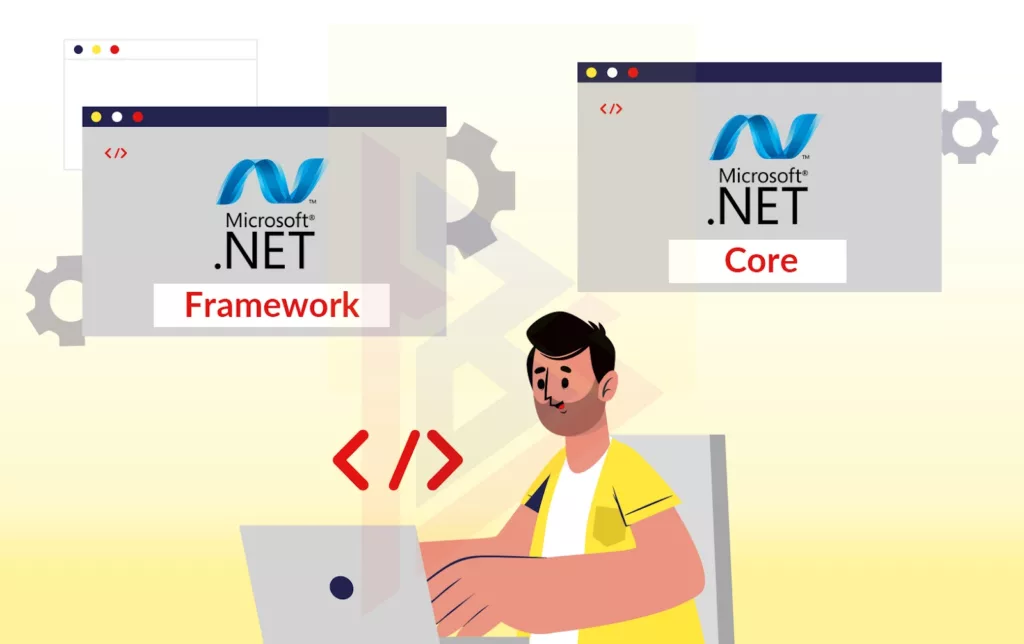
According to a 2021 StackOverflow survey of 80,000 developers, .NET 5 and its predecessor .NET Core were rated as the favorite development platforms by 72% of respondents.
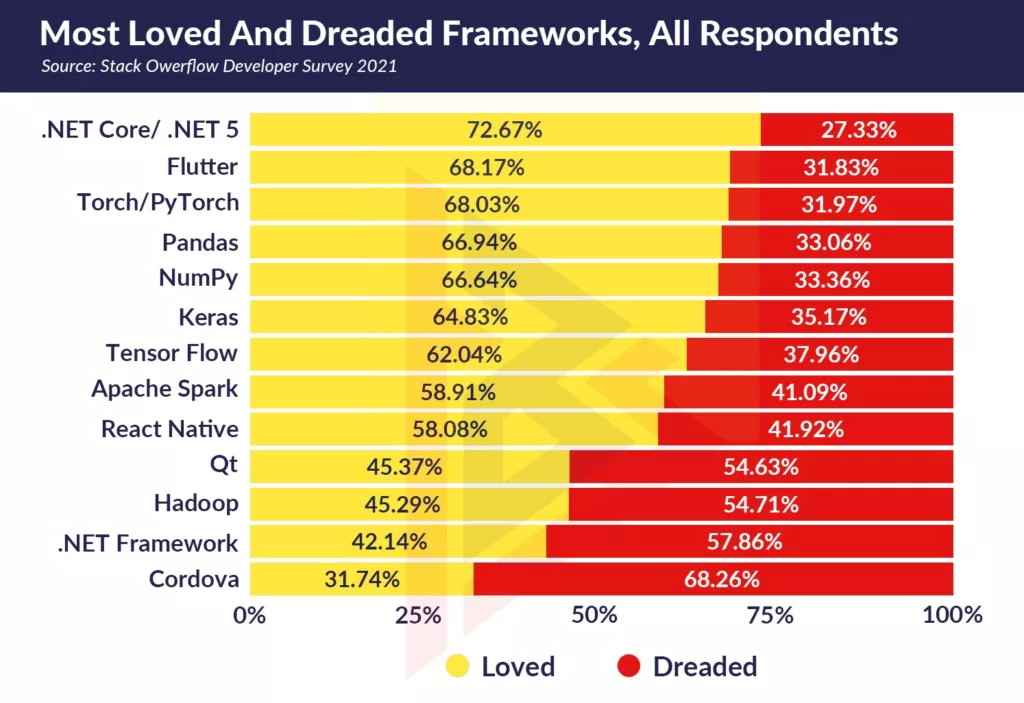
.NET Framework is rated as the most popular framework by 37% of professional developers. .NET 5 is not as popular as .NET 4.
Whatever perspective you take, the numbers are impressive for two reasons:
Developers are extremely nitpicky about the tools they use; .NET 5 is a brand-new platform that is widely used today.
.NET Framework results in the following:
- Easy to use;
- Standards of high security;
- The .NET ecosystem offers a variety of tools;
- Their commitment to continuous platform development and support;
- A community that is active;
- The popularity of the Windows operating system.
In addition, thousands of companies have used the .NET framework since it was first released. That’s why it was no surprise when .NET 5 debuted. Extending.NET’s capabilities to open-source, cross-platform capabilities along with several new features, was a natural evolution of the framework.
.NET 5 was already an excellent foundation for future development, as you can see.
Read about the Best ASP.NET Tools For Development.
A lot of new features have been added to .NET 6 recently, such as:
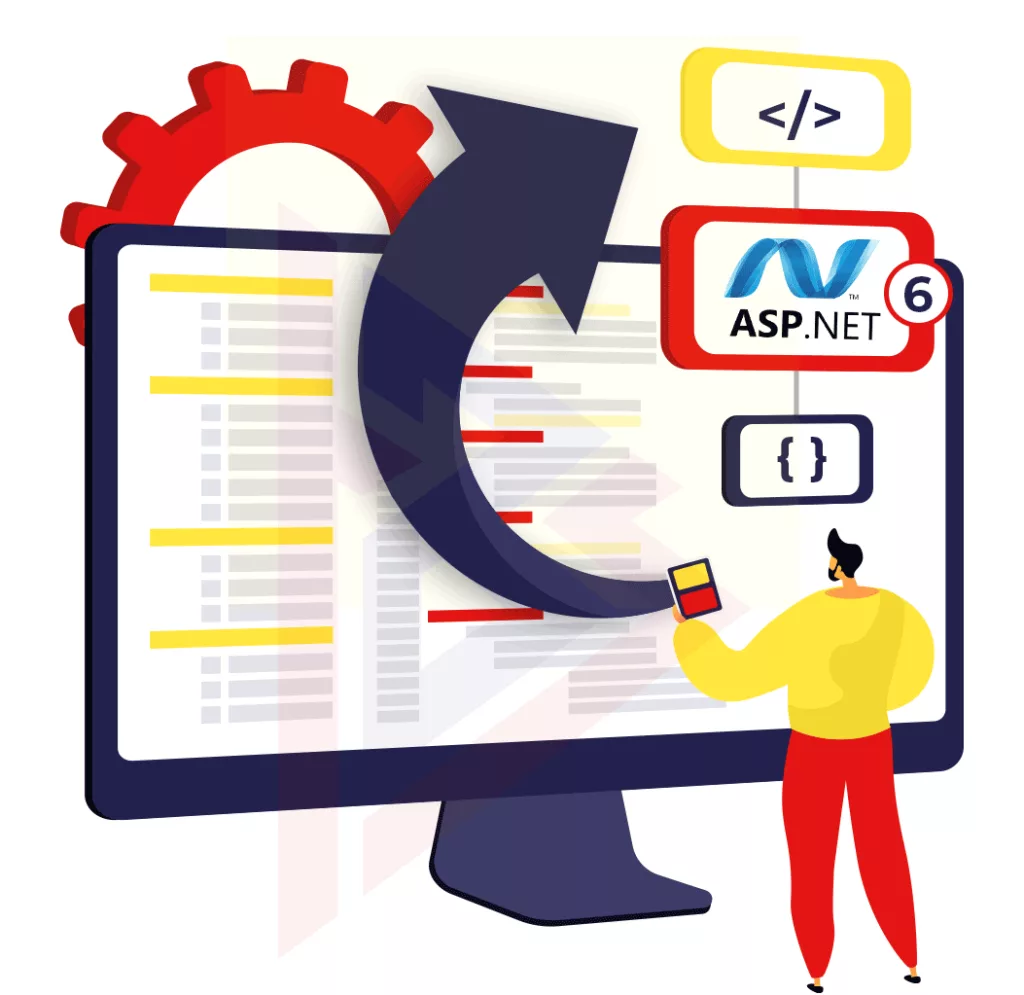
- Making .NET more accessible to beginners “With clear docs, simpler code models, fewer files and concepts to learn, and intuitive deployment methods.” (Microsoft’s efforts to help develop the next generation of developers are greatly appreciated.)
- Using tools such as Blazor and Xamarin to improve an existing cross-platform client app foundation.
- Add cloud-native features and integrate with the container and cloud-native ecosystems.
- Improving the suitability of .NET for large enterprises and government customers.
- Libraries from community open-source projects can be, easily incorporated into the development process. This update is particularly welcome because solid community libraries can save a lot of time and headaches for developers.
- Performance improvements, hot restarts, and hot reloads.
- Speeding up startup and improving throughput.
- Improving existing features in order to satisfy developers.
- Testing on Linux across platforms
- The addition of Web Live Preview
What’s the Future of the .NET Framework?
.NET 6 isn’t the end of the line, so what’s next? How does .NET’s future look?
To begin with, .NET 5 was the first major step towards the framework’s unification, and it created a single ecosystem of development tools that could handle desktop, web, cloud, mobile, gaming, IoT, and artificial intelligence.
An overarching system that unifies different development tools is a good idea. A single point of access to a vast array of different programming tools simplifies, accelerates, and secures the development process. Clients also benefit from reduced development costs.
As a consequence, it is likely that this unification will continue to strengthen with each passing year.
Let’s also explore the Themes of .NET, which provides a collection of the most urgent and discussed topics and issues within the .NET development community.
Taking this into consideration, we can anticipate future .NET evolution vectors, such as:
- Making the learning curve of .NET even friendlier to beginners. .NET will have more potential, more libraries, and an active community as there are more people this framework can hook into.
- Strengthening open-source capabilities. It is a complex process to make community-centric development a reality, but one that is essential since open source is the future of development. The framework’s open-source capabilities will continue to improve with each iteration of .NET
- Improving cross-platform UI-building features in Blazor, ASP.NET. It is not enough to ensure smooth logic programming but also polished UI creation regardless of the target platform if you want your framework to be the future of software development.
- Improving on MAUI. We can expect to see even more powerful cross-platform features thanks to MAUI’s replacement of Xamarin.Forms.
- Boosting project build, code compilations, and overall performance speeds. ASP.NET hot-reloading and Blazor compiling ahead of time are among the goals.
- Improving .NET’s machine learning and artificial intelligence capacities. It makes no sense to discuss ML’s importance for software development. So we can expect further improvements to Microsoft’s ML library, making machine learning algorithms easier to integrate into .NET projects.
- Even more attention and improvements to C#. C# is Microsoft’s most exciting programming language update, outpacing Visual Basic quite some time ago. Visual Basic may fade into oblivion fast, but C# will continue to flourish.
NET Core and API
Database access endpoints are typically created using the .NET Core API. Scalability and security are ensured by using this method. .NET Core is used at the backend and React.Js, Angular, and Vue.js at the front end.
In previous versions of .NET Core, the libraries and components of legacy code were not supported. This has changed with the introduction of .NET Core 2.0. .NET Core 2.0 features WPF and WinForms, letting developers migrate desktop applications and legacy applications to .NET Core.
The NET Roadmap
Microsoft released .NET Core version 3.0 in September 2019 and version 3.1 in November.
Microsoft releases one version every year since then, and it will continue to do so. Each version is, supported, maintained, and improved. Minor versions will be, provided according to needs, support, and security issues, even though they are not, included in the visual roadmap.
.NET Core Roadmap: The word “core” is, no longer in the product name after 2020. .NET Framework compatibility is, included in version 5.0. By renaming .NET Core as .NET Framework, any differences between the two will be, eliminated.
.NET is a Unified Platform
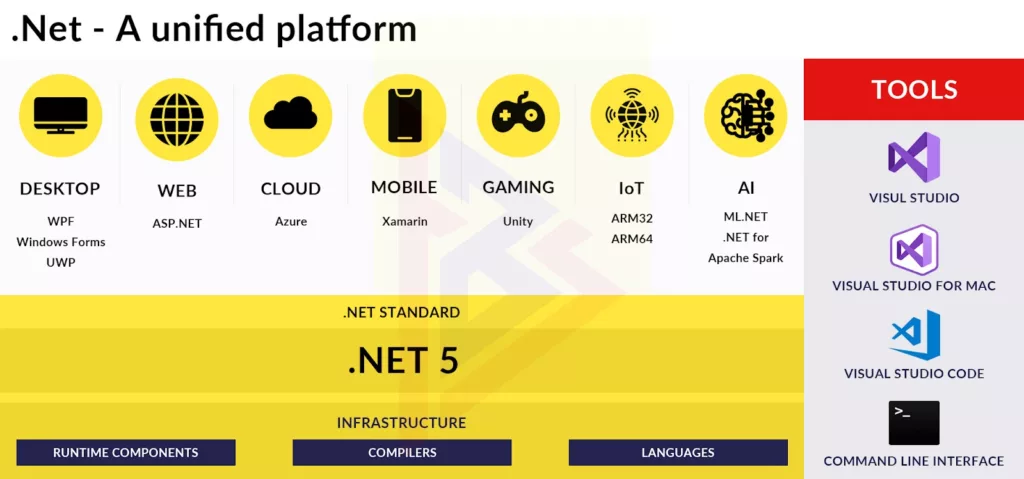
Released in 2020 with version 5.0, the Unified .NET platform allows developers to reuse code in line with .NET standards.
Many of the .NET Core’s features are, supported by the .NET Standard, making it suitable for web, desktop, and mobile projects. It enables the reuse of business logic and reduces coding time.
Why Prefer Net Core Over Other Framework?
Why should developers use NET Core when other frameworks provide similar functionality?
Visual Studio for Windows, MAC, and Azure are, among the Microsoft tools designed and optimized for .NET Core. As well as deploying and creating applications, Microsoft Cloud services include many tools. The tools increase the speed of writing code and allow it to be, debugged. Microsoft Azure is also compatible with a variety of programming languages and Frameworks. The only framework that supports all features of Azure is NET Core.

As well, Microsoft is developing additional open-source projects to improve and enhance .NET Core in a number of areas. The official Microsoft repository hosts all open-source projects for .NET Core.
Here are three .NET projects that are currently popular:
- The BenchMark DotNet library performs .NET benchmarking in an easy-to-use interface.
- In Azure, ML.NET is a cross-platform, open-source machine learning framework .NET.
- Also .NET reactive extension (Rx) for Act Reactive.
Is it worth developing software on .NET in 2023 and beyond?
So, it’s a Yes. That’s the short answer. A framework such as this can be, used to deliver reliable, secure software to enterprises as well as small businesses. Therefore, with the current Asp .Net development service of the framework, we see a stable and bright future. NET.
Additionally, what are your thoughts on what software development tools of the future will look like?
This vision that Microsoft is, selling us with .NET 6 and beyond is, aligned with our vision for a solid, convenient, and cost-efficient framework that can handle everything from web development to AI and IoT.
We’re eager to take advantage of what the .NET ecosystem has to offer as we build software for our clients, and we’ll watch its evolution with great interest.
Are you working on a project? Let’s talk about it.
Frequently Asked Question
The .NET Framework is, a software development framework developed by Microsoft. It provides a programming model, libraries, and runtime environment for building and running applications on Windows.
Microsoft has been focusing on the .NET Core framework, which is a cross-platform, open-source successor to the .NET Framework. With the release of .NET Core 3.0, Microsoft introduced a unified framework called “.NET 5,” which merges .NET Core, Xamarin, and Mono.
The .NET Framework is Windows-specific and runs only on Windows machines. In contrast, .NET Core is a cross-platform framework that can run on Windows, macOS, and Linux. Additionally, .NET Core offers better performance, modularity, and support for containerized deployments.
As of September 2021, the latest version of the .NET Framework is 4.8. However, it’s important to note that Microsoft has shifted its focus to .NET 5 and subsequent versions, which are part of the .NET Core and .NET 5+ family.
Yes, you can still develop new applications using the .NET Framework. However, considering the future direction of the .NET platform and the benefits offered by .NET Core and .NET 5+, it is advisable to evaluate the suitability of .NET Core or .NET 5+ for your project’s requirements.
While Microsoft has not officially announced the deprecation of the .NET Framework, it is, recommended to migrate existing applications to .NET Core or .NET 5+ to benefit from the latest features and cross-platform capabilities. Microsoft provides migration guides and tools to assist in the transition.
